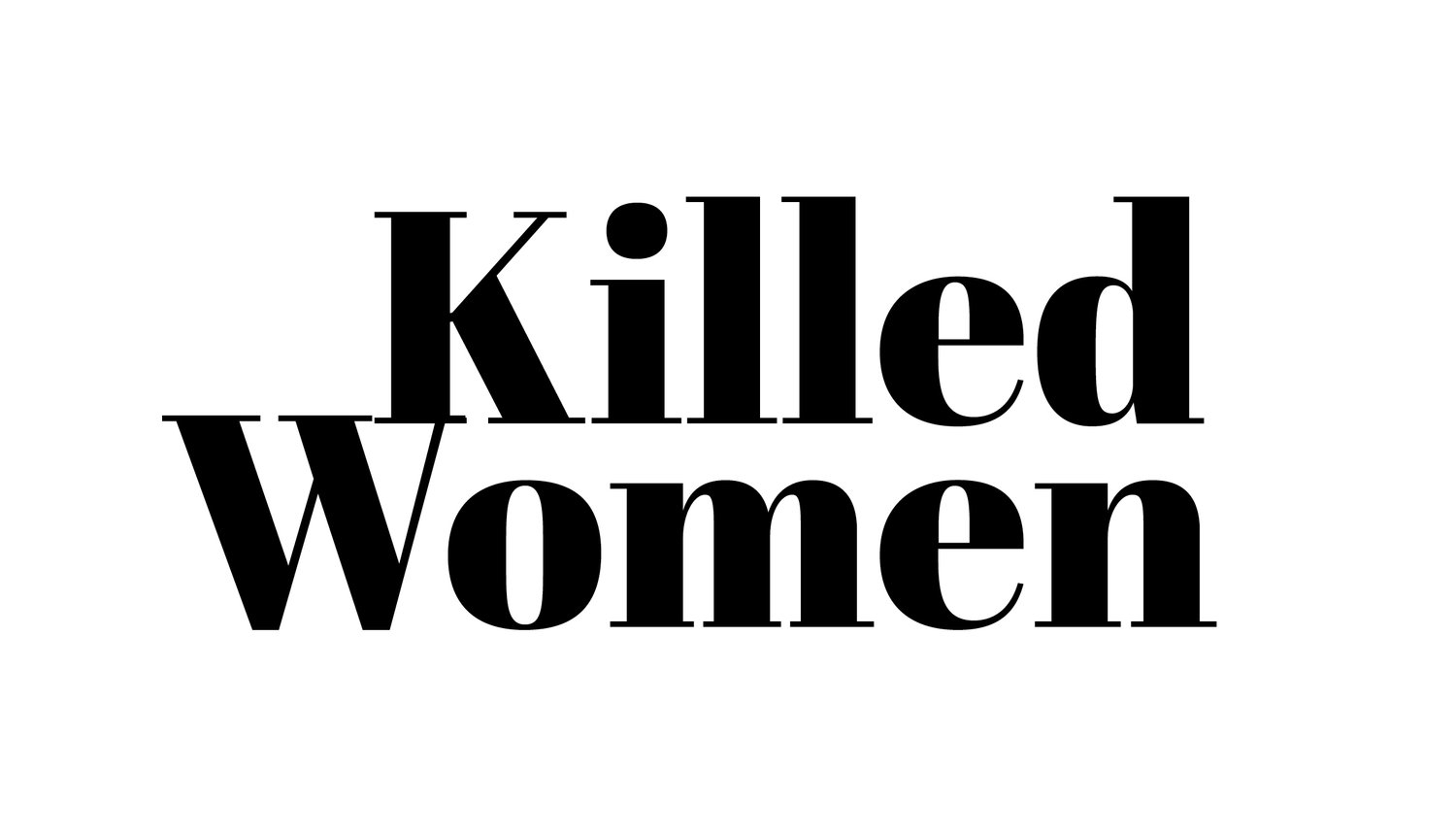Killed Women is an organisation and network for the bereaved families of women who were killed by men in the UK. We work to protect women’s lives and ensure justice, both in the present and for future generations.
A woman is killed by a man every three days in the UK.
They are our daughters, sisters, mothers and loved ones.
But we are not after sympathy - what we want is change.
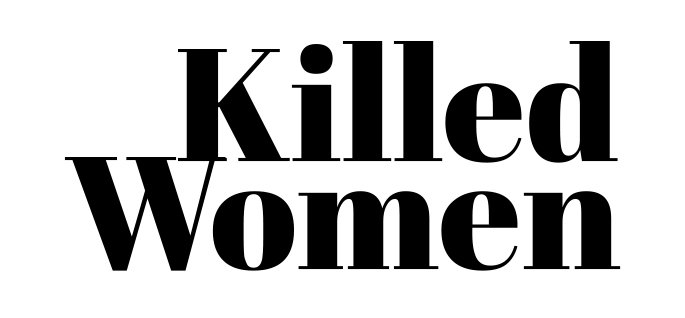
-
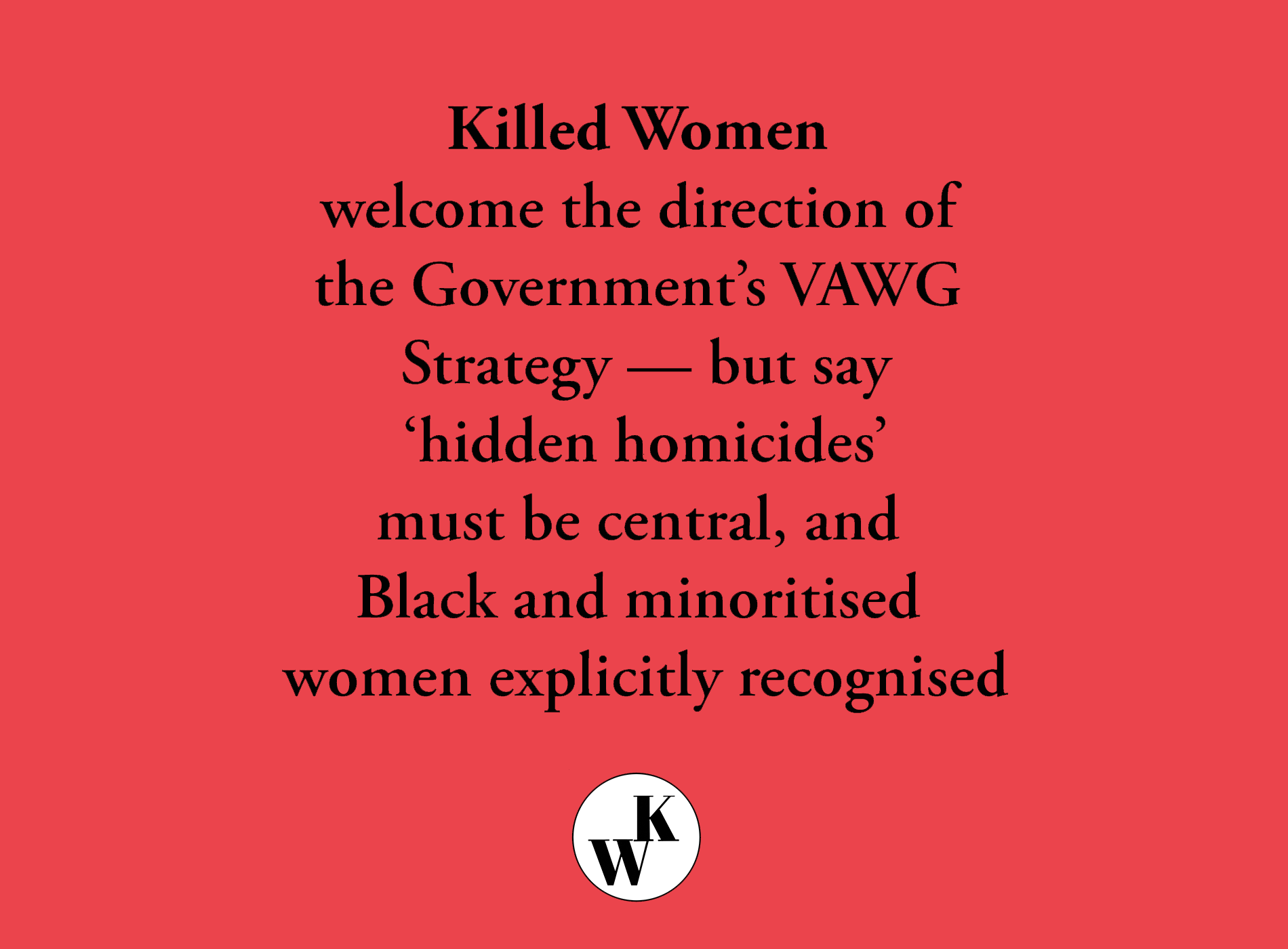
Petition
Killed Women believe it is unacceptable that Black, minoritised and migrant (BMM) women are still not explicitly mentioned and recognised as victims in the Government’s long-overdue Violence Against Women and Girls (VAWG) Strategy.
We have launched a petition on Change.org that calls on the Government to explicitly include BMM women in their VAWG Strategy.
Our report ‘Invisible Women “Made Visible”: Learning from the Femicides of Black, Minoritised and Migrant Women’, in partnership with Southall Black Sisters, shows the deadly consequences of this exclusion:
🖤 1 in 4 women killed by domestic homicide were Black, minoritised or migrant.
🖤 In London, 62% of femicide victims were Black women.
🖤 Almost every woman killed by a man in London in 2023 was from a BMM background.
These women were failed by systems meant to protect them — A VAWG strategy that ignores the women most at risk is not fit for purpose — Our loved ones should still be here.
_________________
How you can help:
● Sign our Petition ‘Make Invisible Women Visible in VAWG Strategy for BMM Women’
● Write to your MP, urging them to support our Invisible Women campaign, which confronts the systemic failures that leave BMM women experiencing abuse without protection or justice.
-

The VAWG Curriculum
On 25 November 2025, the International Day for the Elimination of Violence against Women,
Killed Women launched ‘The VAWG Curriculum’ campaign.The campaign, which was active for the duration of the UN’s 16 Days of Activism against Gender-Based Violence, calls on the public, policymakers, educators and communities to take action today to build a safer future for women and girls.
Working in collaboration with a network of charities, influencers and partner organisations, this social media awareness campaign centres on a message of hope and prevention, with the message that violence against women and girls is not inevitable.
The campaign highlights the urgent need for action – and invites people to play their part in changing what the future looks like for the better.
————————————
16 Days of actions – for us to take together,
to tackle Violence Against Women and Girls.Please follow us on our social channels, and share our campaign: X / LinkedIn / Instagram / Facebook / Threads / Bluesky / TikTok / YouTube
For full details of our campaign, as it unfolded day by day, go to our dedicated webpage, where you will find each day’s Message, Call to Action and videos from our various contributors:
-

INVISIBLE WOMEN: We Were Here, Where Were You?
On 31 October 2025, Killed Women launched a campaign to confront systemic failures that leave Black, minoritised and migrant (BMM) abuse victims and families unprotected and without justice. The campaign — INVISIBLE WOMEN — demands accountability, visibility and systemic reform across policing, Domestic Abuse-Related Death Reviews, inquests and support services.
INVISIBLE WOMEN is a family-led campaign founded by KW Co-Founder Jhiselle Feanny with support from Dr. Hannana Siddiqui of Southall Black Sisters. The campaign brings together the bereaved families of BMM women killed through domestic abuse and fatal male violence, both in public spaces and in the home.
The campaign launched with the release of:
● The FILM Invisible Women: We Were Here, Where Were You?
● The PLEDGE Invisible Women: We Were Here, Where Were You?
● The REPORT Invisible Women “Made Visible”: Learning from the Femicides of Black, Minoritised and Migrant Women
__________________________
CAMPAIGN PLEDGE - INVISIBLE WOMEN: WE WERE HERE, WHERE WERE YOU?
INVISIBLE WOMEN wants justice and a government commitment to culturally competent, anti-racist practice and to amplifying bereaved families’ calls for change. By making your pledge you affirm your commitment to help us:
● See and honour our women: Amplify bereaved families’ voices, and share the film, the report and the campaign in general.
● Change practice: Commit to anti-racist, culturally competent responses across policy, policing and support, and remove barriers such as NRPF; while challenging institutional racism, bias and neglect.
● Support: Back specialist ‘by and for’ services.
__________________________
Melanie Brown MBE, campaigner:
“This important campaign challenges racism and discrimination in policing and policy. We know it happens and it is up to us all to take action and call for much-needed changes. Last week I met some of the families who have lost their loved ones. Their stories devastated me but their courage to fight in the face of their grief just blew me away. It is so important that everybody joins us in this campaign and does everything they can to support them.” -
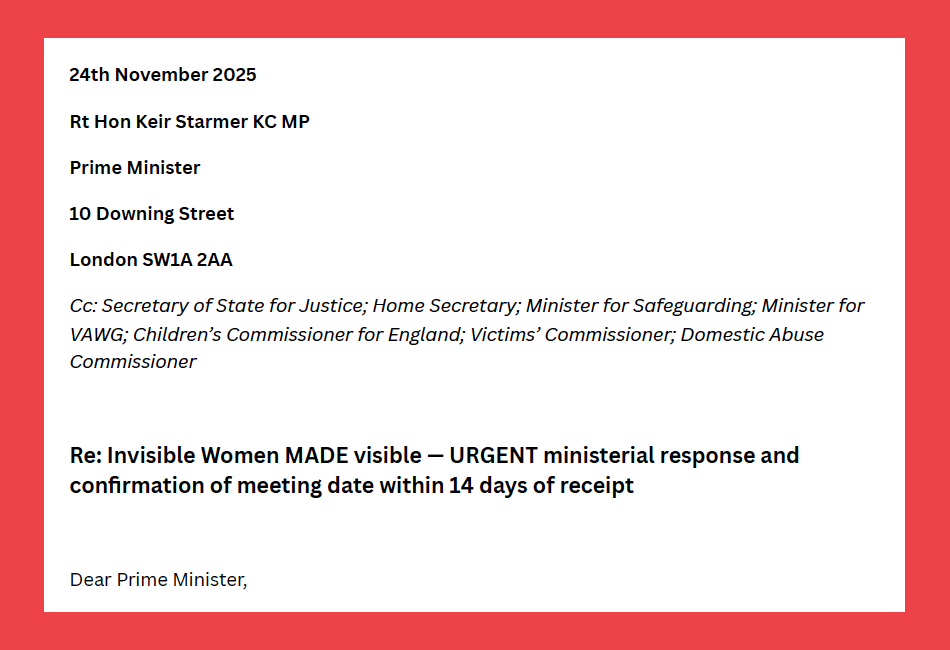
STATEMENT
24 November 2025. Killed Women's response to the shocking Independent Office for Police Conduct (IOPC) findings into police failings surrounding the death of Harshita Brella in November 2024.
Following the IOPC statement today (https://bbc.co.uk/news/articles/c1m89d0jjplo), our Killed Women bereaved families—supported by the Invisible Women campaign, Killed Women and Southall Black Sisters—are requesting an URGENT meeting with the Government to progress discussions and take forward the recommendations set out in our recent research report ‘Invisible Women “Made Visible”: Learning from the Femicides of Black, Minoritised and Migrant Women’ (https://killedwomen.org/invisible-women).
-

'Make It Mandatory' Petition
Faustine Petron, who started the Make It Mandatory campaign for increased relationship education, was herself a victim of domestic abuse before her ex boyfriend was sent to jail. Her campaign says Relationships and Sex Education (RSE), which is already taught in primary and secondary schools, should be extended to colleges and sixth forms. Over 105,000 people have signed her petition, which was delivered to Downing Street on 16 June.
Killed Women co-founder Carole Gould, whose 17-year-old daughter Ellie was stabbed to death by a fellow student at her school (also 17 at the time) after she ended their relationship of three months, helped to deliver Faustine's petition as an expression of KW’s support for the campaign.
For more information about the campaign and to sign the petition, please see Faustine’s page on Change.org: ‘Ask the government to help prevent domestic abuse through education‘
-

DHP Report
The Domestic Homicide Project was established by police and government in England and Wales to collect, review, and share quick time learning from all police-recorded domestic homicides, unexpected deaths and suspected suicides of individuals with a history of Domestic Abuse victimisation.
The Project’s Year 4 Report has recorded 1,012 deaths since 1 April 2020 (to 31 March 2024). These include: 501 domestic homicides (332 intimate partner homicides and 169 adult family homicides); 354 suspected victim suicides following domestic abuse; 71 unexpected deaths; 61 child deaths; 25 deaths classified as ‘other’ (such as lodger/flatmate). 262 deaths were recorded in Year 4 (1 April 2023 to 31 March 2024).
Intimate partner homicides have remained relatively stable over the course of the 4 years of data collection, highlighting the need for government to take action to prevent these deaths from happening.
For the second year running, deaths by suicide among victims of domestic abuse surpassed the number of people killed by an intimate partner.
Analysis into deaths where someone had fallen from a height is presented too, carried out in collaboration with Killed Women. 22 cases were recorded in this category with 20 of the suspects (of 23) recorded as being in an intimate relationship with the victim.
Greater awareness of the link between suicide and domestic abuse, plus revised guidance related to unexpected deaths is more likely to explain the increase in numbers rather than an empirical rise in cases.
However, as National Police Chiefs' Council Lead for Domestic Abuse Louisa Rolfe recognises, a step up in police investigations is needed so that domestic abuse is always a key line of inquiry. -
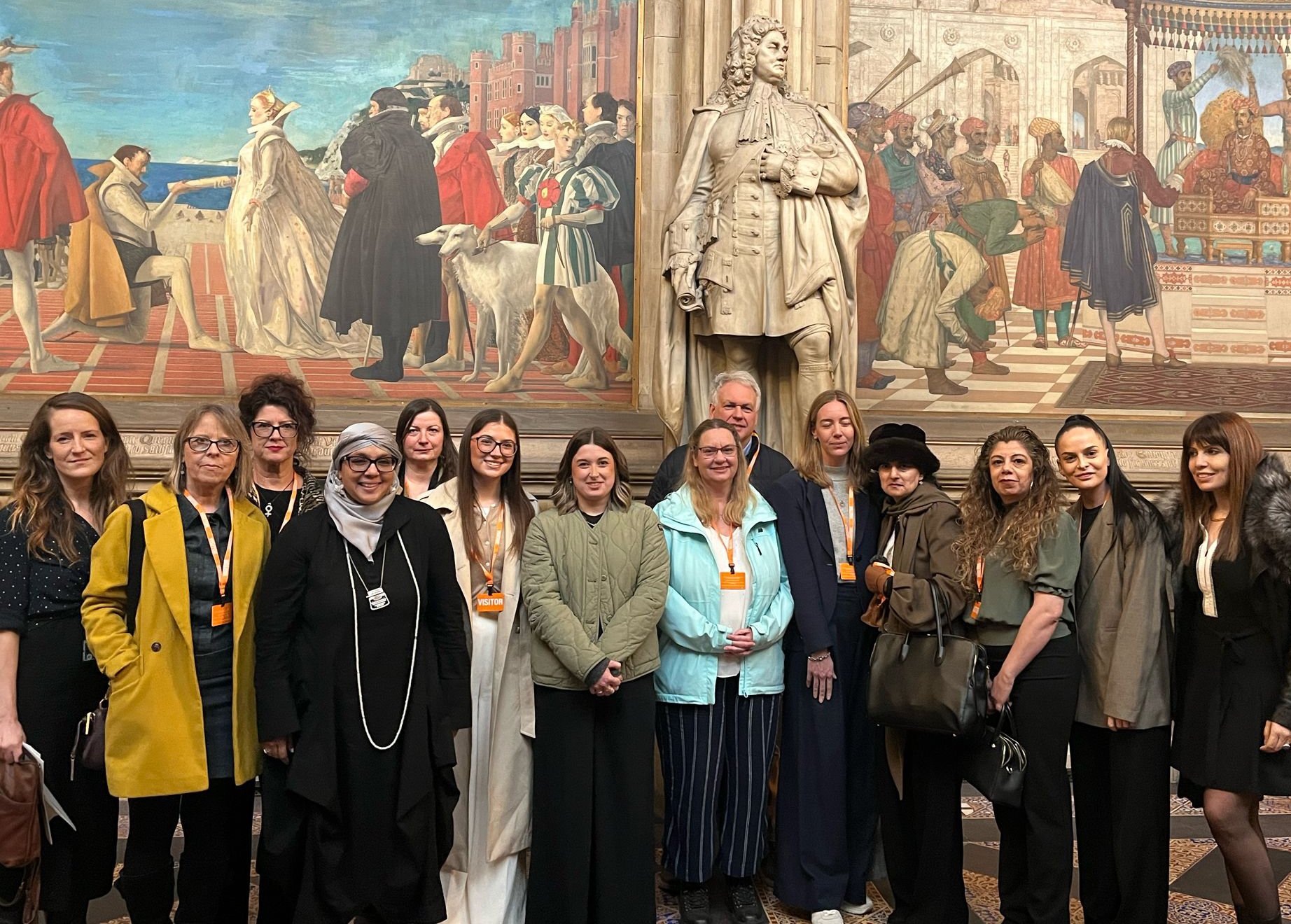
International Women's Day 2025
On Thursday 6th March Killed Women were at Westminster to hear Jess Phillips MP read out the names of the 95 women and girls known to have been killed by a man in the past twelve months, as she has done for the past ten years, to mark International Women's Day.
Yesterday she did so for the first time from the front benches as a Home Office Minister. In another first she also recognised the women whose names do not make it onto the list:
"We remember the list of women who died from suicide, or in unclear, sinister and hidden circumstances where we know there was a history of domestic abuse or sexual violence. Those women's names will not make it on to this list, because nobody has ever been held accountable for their deaths. Today I promise that we are working on these hidden homicides. They deserve better. They deserve justice."
-

Black & Blue Plaques: 'Killed Here'
Killed Women’s Black & Blue Plaques: ‘Killed Here’ campaign, launched in December 2024, calls on the new Labour Government to uphold the Conservatives’ commitment to change the outdated and misogynistic UK domestic homicide sentencing laws in support of murdered women and their families.
On average, in the UK perpetrators who kill in the home using a weapon kept in the home receive a sentence with a minimum prison term (starting tariff) before being considered for parole, of around ten years less than those killed out of home, due to out-of-date laws.
One woman is killed by a man every three days in the UK - and in most of these cases they are murdered by people they know, and the murders are generally horrific in nature and involve overkill. However, the final blow for families is often in the sentencing, when the criminal justice system deems their loved ones' lives are worth ten years less.
Killed Women calls for Sir Keir Starmer and Shabana Mahmood, the Lord Chancellor, to urgently include this crucial issue in the Government’s agenda.
“We want the symbolism of these plaques to raise this issue in the House of Commons. The Government showed a refreshing approach to the riots this summer and we want this issue to be granted the same attention, in honouring the pledges made by the previous Government. While this won’t bring our loved ones home, at the very least, families of future victims will be consoled by the knowledge that justice has been served.”
Each bespoke Black & Blue Plaque includes the woman's name, their life span, and then the words: 'Killed here', the sentence given, and 'Murder is murder, change the law'.
Read Press Reports
-

Fallen Women
March 2024. Killed Women’s Fallen Women campaign calls for the deaths of all women who have fallen from a height to be reviewed by police to identify whether domestic abuse may have been a feature.
We want official data collection to track the number of women who die after falling from a height each year, and believe that domestic abuse should be a key line of inquiry for police in all such cases.
Criminologist Professor Jane Monckton Smith estimates there are around 130 primarily female victims killed every year in England and Wales whose deaths are not investigated or prosecuted as homicides.
____________________
The campaign opening coincided with the Channel 4 documentary ‘The Push: Murder on the Cliff’, which follows the case of Fawziyah Javed, who died after being pushed off Arthur’s Seat in Edinburgh by her husband in 2021.
Fawziyah’s mother Yasmin, a member of the Killed Women network, said: ‘Domestic abusers will continue to get away with murder if we don’t ensure the cases of so-called fallen women are rigorously investigated by authorities. We must have a system that delivers justice for these women.’
‘The Push’ has won ‘Best Programme’ at the Asian Media Awards and ‘Best Documentary Series’ at the Grierson Awards. This telling of Fawziyah’s story has helped people leave abusive relationships and saved lives around the world.
-

YOU WERE TOLD: A Voice for Killed Women
During 2023, Killed Women and research organisation Ipsos conducted an anonymous survey for relatives of women killed by male violence.
The aim of the survey was to better understand the experiences of bereaved families and what changes must be made to ensure women are protected, families supported and justice delivered.
The findings from the survey have now been collated into a report (entitled ‘YOU WERE TOLD: A Voice for Killed Women’), published and shared with the public at our Westminster event on 5th December 2023, entitled The Final Protest.
Be a voice for Killed Women and demand change. Click on the button below to access the report - and send it to your MP.
-

Murder Sentencing Consultation
This consultation, published by the Ministry of Justice, considered:
- raising starting points for killings with a history of coercive and controlling abuse or with a weapon;
- and whether murderers who use a knife or other weapon already at the crime scene should also face steeper starting points – which would result in higher minimum jail terms in these cases.
Julie Devey, Carole Gould and Elaine Newborough of Killed Women discuss these - and related - issues in a short film entitled
These three mothers of Killed Women were interviewed by Julie Etchingham for ITV’s Tonight programme on Thursday 22 February:
CONSULTATION CLOSED 4 MARCH 2024
The Ministry of Justice is now considering its response to the public consultation following 5,200 responses.
-

Contact numbers in a crisis:
-

Get in touch with us
We are reaching out to other families of women killed by men who might want to join the Killed Women network.
If you are a bereaved relative please email us at info@killedwomen.org for more information or click on the button below.
-
Donate
Your donation will help families elevate their voice and build this organisation, to create a legacy of change that ensures justice and protection for women in the future.
